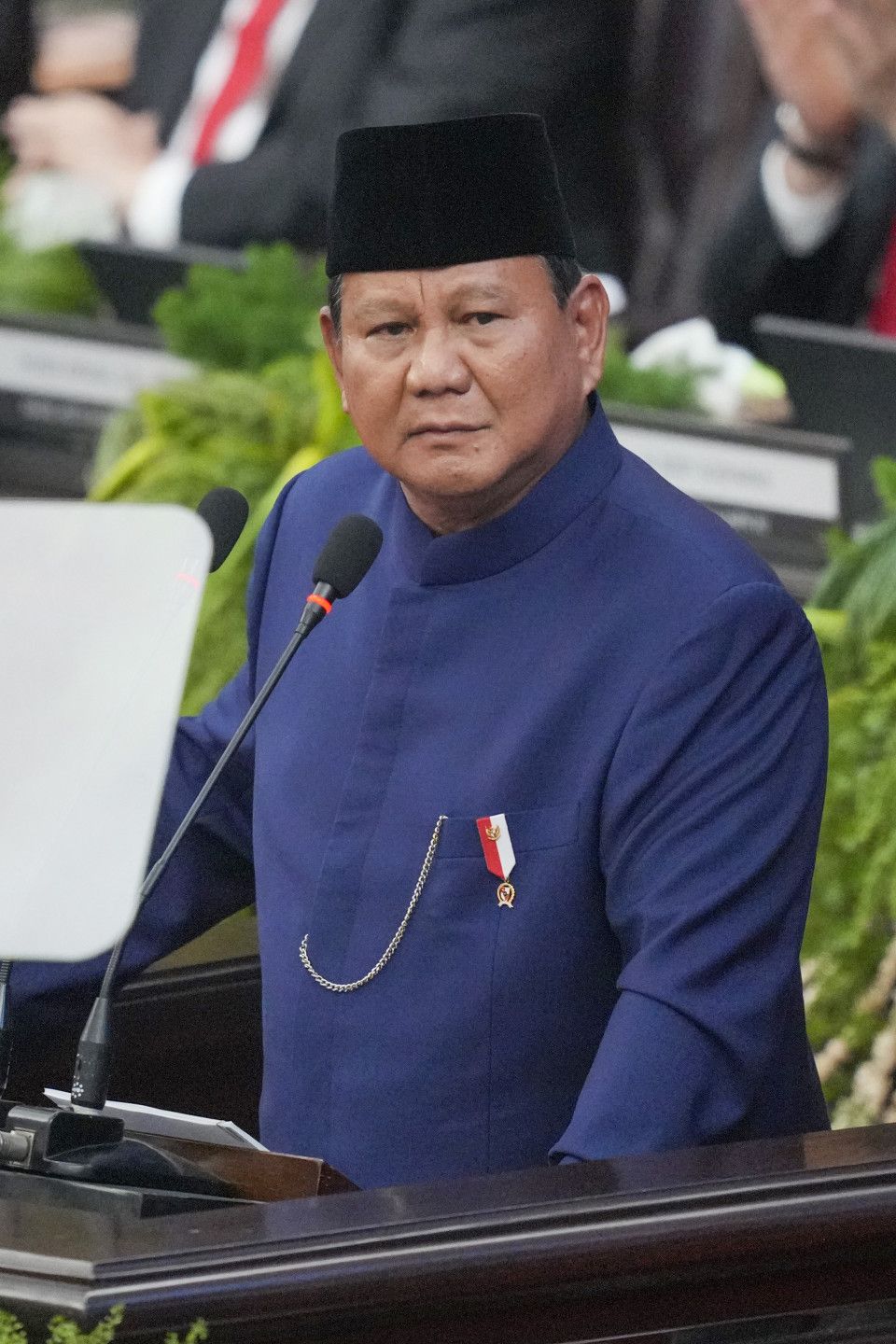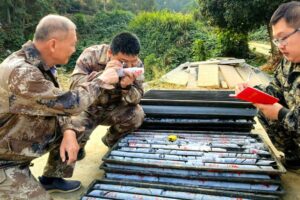
This Sunday, Prabowo Subianto assumed the presidency of Indonesia, succeeding Joko Widodo, who completed his two terms allowed by the constitution. This leadership change marks the first time in a decade that Southeast Asia’s most populous country has undergone a presidential transition.
Subianto, 73, a former army general, was sworn in at a ceremony in Jakarta, where he was accompanied by a Muslim cleric who held a copy of the Koran above his head, in a symbolic act that represents the centrality of religion in the Indonesian politics and society.
Along with Prabowo, Gibran Rakabuming Raka, 37, the eldest son of Widodo, popularly known as Jokowi, was sworn in as vice president. This appointment generated great interest and expectations due to Gibran’s youth, an unusual fact in Indonesian politics, and his direct link with the outgoing president.
Continuity in the midst of change
Prabowo Subianto comes to power after a resounding victory in February’s presidential election, where he promised to continue his predecessor’s key policies. Among these initiatives, the ambitious project to move the capital of Indonesia from Jakarta to the new city under construction, Nusantara, located on the island of Borneo, stands out. This project, initiated by Widodo, seeks to alleviate population pressure and environmental problems in Jakarta, which faces challenges such as gradual land subsidence. Furthermore, the new president has expressed his commitment to accelerating the country’s economic growth, with the aim of raising it from the current 5% to an ambitious 8%.
In his inaugural address, Prabowo emphasized the need for the nation to courageously confront structural problems, highlighting persistent poverty in Indonesia. The president called not to ignore these realities and compared the evasive attitude towards problems with the image of an ostrich hiding its head. “We must stand firm and face these challenges with courage,” he said, underscoring the importance of national unity to find solutions.
One of Prabowo’s most notable proposals is the implementation of a free lunch program for primary and secondary school students, with the aim of improving child nutrition in the country.
According to the president’s plan, this program would cost 1.2 trillion rupees per day (approximately $77.4 million) and would begin to be implemented next year. However, this proposal has generated criticism from economic experts, who have expressed concern about the impact it would have on the state budget.
Despite criticism, Prabowo defended his proposal by stating that too many Indonesian children attend school without having eaten breakfast, contributing to high levels of child malnutrition. Furthermore, he underlined his commitment to making Indonesia self-sufficient in food production, an objective that has already been prioritized by previous governments but faces complex challenges in implementation.
In the field of foreign policy, Prabowo has expressed his intention to maintain Indonesia’s traditional neutral stance in international affairs. Indonesia, under its predecessors, has maintained a policy of non-alignment, avoiding joining geopolitical blocs, which has allowed it to retain close economic relations with China while strengthening its strategic ties with the United States. The president reaffirmed this policy, noting that Indonesia will continue to skillfully navigate between these global powers, an approach that reflects the country’s desire to maintain its sovereignty and autonomy in an increasingly polarized world.
Prabowo’s inauguration was attended by several foreign dignitaries, including Cambodian Prime Minister Hun Manet and Singapore Prime Minister Lawrence Wong. The presence of these leaders underlines the importance of Indonesia as an emerging power in the region and its crucial role in the stability and development of Southeast Asia.
A president with a controversial past
Prabowo Subianto is the third Indonesian president elected by popular vote since the fall of the Suharto dictatorship in 1998. This election marks a significant moment in the country’s history, as Prabowo was closely linked to the Suharto regime, who was his father-in-law. . During the final years of Suharto’s rule, Prabowo headed the army’s special forces command, a unit accused of having kidnapped and tortured political opponents and student activists. These events led to his dismissal from the army, although he was never legally prosecuted.
Despite his controversial past, Prabowo has managed to consolidate his political power and, after two failed attempts in previous elections, finally achieved his rise to the presidency on his third attempt. During his campaign for the February elections, he chose Gibran as his running mate, a decision that generated controversy because the constitution establishes a minimum age of 40 for candidates for president or vice president. However, Jokowi’s explicit support for Gibran’s candidacy, as well as his apparent intervention in the campaign, were factors that helped Prabowo’s electoral success.
Following the election, the political landscape in Indonesia has undergone significant changes. The Indonesian Democratic Party of Struggle (PDI-Perjuangan), led by former president Megawati Sukarnoputri, managed to obtain the largest number of seats in parliament. For its part, Gerindra, Prabowo’s party, achieved third place in parliamentary representation. However, after the elections, several parties that had supported Prabowo’s rivals joined his coalition, thus allowing him to consolidate a parliamentary majority.
Source: https://reporteasia.com/politica/2024/10/21/prabowo-subianto-presidencia-indonesia/

